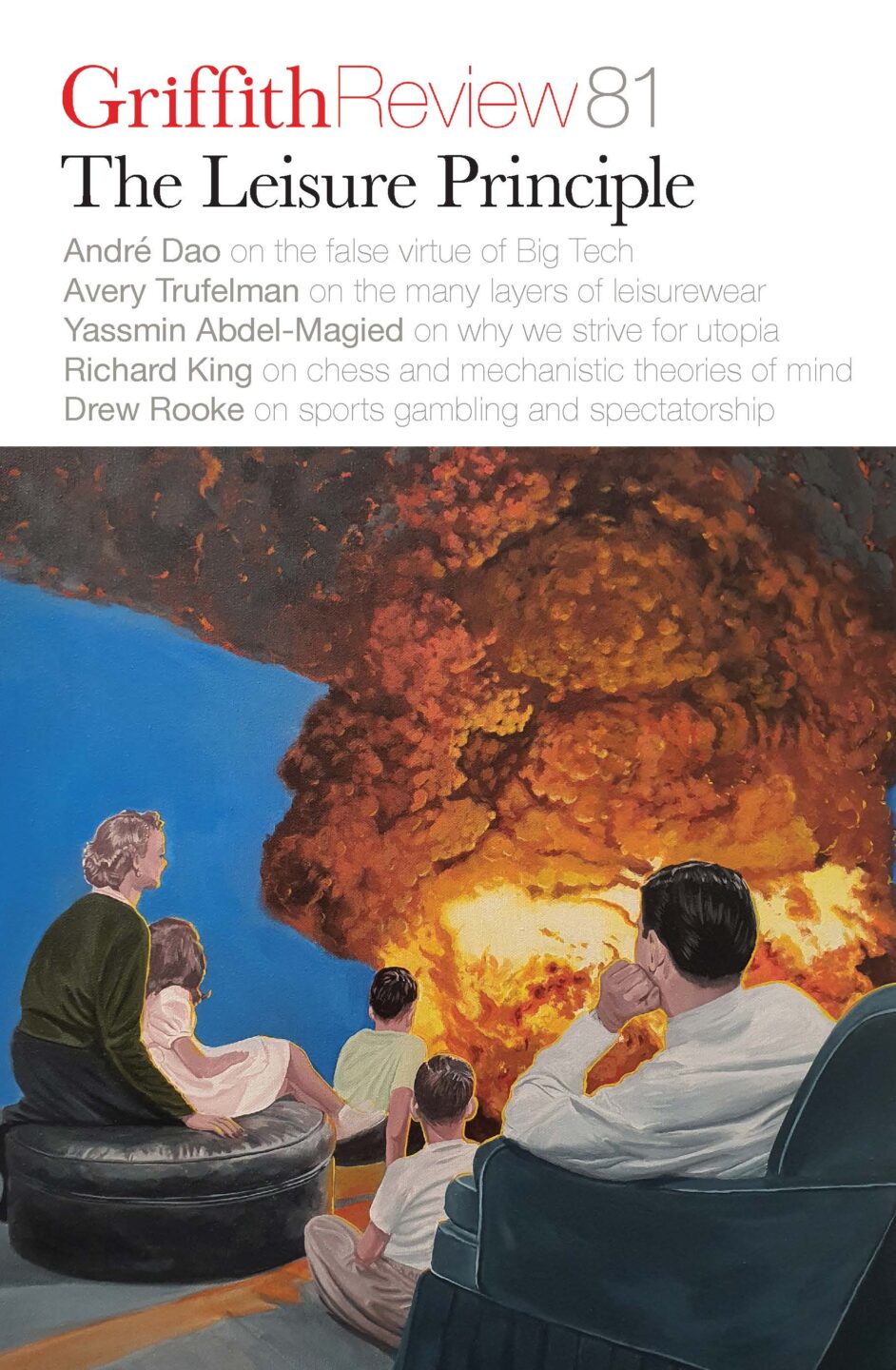Featured in

- Published 20230801
- ISBN: 978-1-922212-86-3
- Extent: 200pp
- Paperback (234 x 153mm), eBook

Already a subscriber? Sign in here
If you are an educator or student wishing to access content for study purposes please contact us at griffithreview@griffith.edu.au
Share article
About the author

Josie/Jocelyn Suzanne
Josie/Jocelyn Suzanne is a genderqueer trans femme living on unceded Wurundjeri land in Naarm (Melbourne). Their work has appeared in Cordite, Southerly, Rabbit Journal and Overland, among others....
More from this edition

Upping the ante
Non-fictionAs it turned out, Centrebet’s move online – coupled with the many other betting innovations it pioneered – led exactly to where Daffy hoped it would: a prodigious pot of gold. He says the company went from taking ‘fifty or sixty bets in one day’ to taking ‘five or 600,000 bets on a Saturday night from all over the world’. By the turn of the millennium, its annual turnover was in excess of $100 million and it had become – in the words of Piers Morgan, its then general manager – ‘one of the leading sports betting organisations in Australia, if not the world’.

In the fullness of time
Non-fictionOur devices and data are more than extensions of our physical bodies. The so-called ‘human-centric’ approach to designing wearable and carriable devices means that they disrupt traditional divisions between work and leisure, production and consumption. It’s difficult not to feel the incursion of work-logics into leisure times and spaces as normal. Stretched for time, couples, families and friendship groups are starting to organise themselves using tools like Slack, Jira, Trello and Asana – that is, in the same way as workplaces.

Salted
FictionWe are absorbed in our work until we are not. Mostly we take breaks together, sitting outside in the sunshine waiting for our thoughts to settle, waiting for our lives to begin. Gus and I have both applied for the same scholarship. We’ll find out at the end of the month. Eve is organising a group show and wanted my latest painting as the centrepiece, but I won’t finish it in time, so I drop out. ‘I’ve got something ready,’ says Gus. Easy enough to find someone to fill my place.